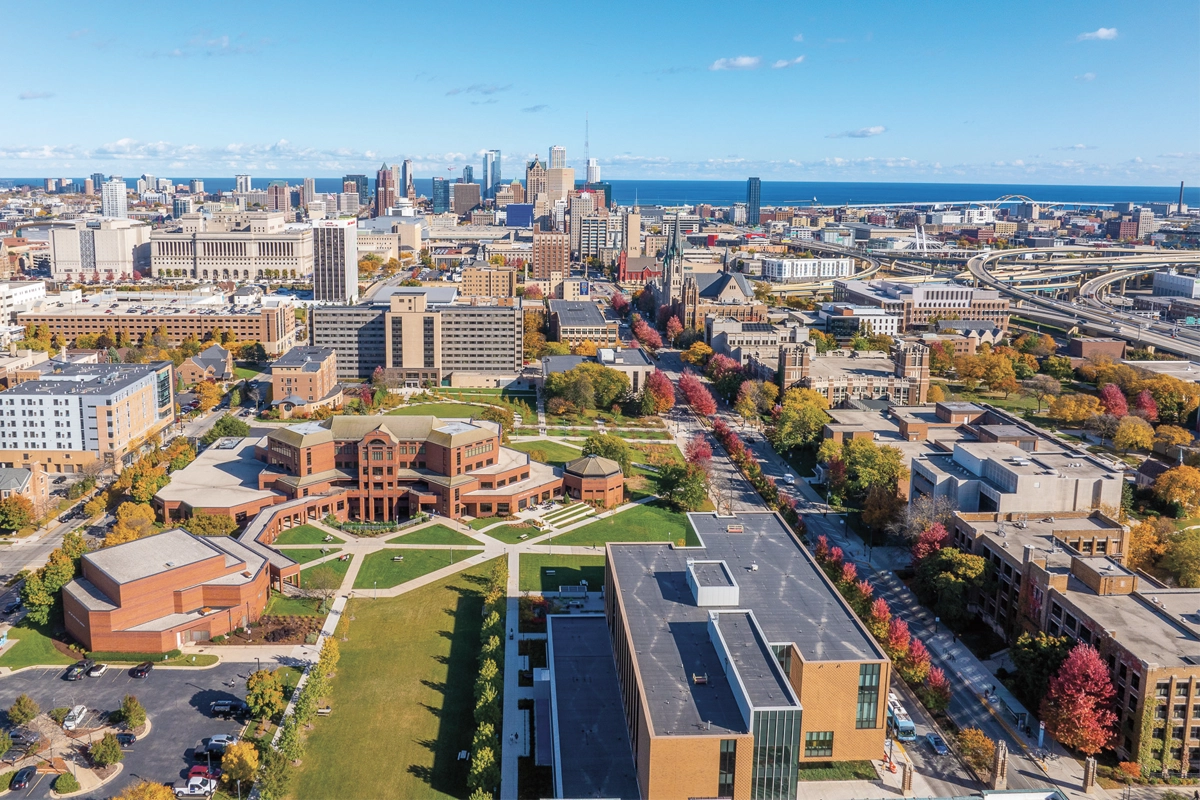Get directly admitted to our College of Engineering and start engineering from your first day of classes. You’ll get lots of hands-on experience here — in class, state-of-the-art labs, internships and co-ops, research, design competitions, club activities and more.
You’ll soon find yourself in the convergence of engineering, biology and medicine, learning how to develop solutions that improve patient care and health outcomes, and building the skills to make significant advancements in health care technology. We have three majors within biomedical engineering: biomechanics, bioelectronics and biocomputing. And because our department unites Marquette’s renowned engineering education and research with the Medical College of Wisconsin’s medical studies and clinical practice, you’ll get an extraordinary biomedical engineering foundation.
With a focus on ethical considerations and a commitment to improving the human condition, you'll graduate with comprehensive skills in biomedical engineering and a drive to make a positive impact in the world.

Engineering Hall, College of Engineering
In the College of Engineering, you’ll feel connected — to your classmates, your accessible professors, our alumni mentors and 500+ companies across 30+ states that engage with our college, many of which are involved with our century-old co-op program that provides you opportunities to engineer before you graduate.
The majority of our biomedical engineering majors go straight into the workforce. Some recent employers of our biomedical engineering majors include:

While you’re here at Marquette, preparing you for what’s next will be one of our top priorities. So, expect lots of learning by doing, connecting with others who share your passions, and reflecting on how you can Be The Difference.
Where better to learn engineering than a masterpiece of engineering? Designed entirely around the needs of the student, Engineering Hall is designated as one of the most innovative places on campus. Its five floors are each dedicated to solving complex problems and answering questions that we are faced with today and tomorrow. And with over 30 labs, you’ll have plenty of inviting spaces waiting for your exploration, creativity and innovation.
For more than 100 years, the College of Engineering has been offering co-ops and internships to offer you employment experience while you are still in school. We work with over 500 leading industry partners to provide you with a head start on your career through real-world work. Here are just a few of our partners in the biomedical engineering space:
As an undergrad, you can team up with a faculty member or research group to discover new information in areas of biomedical engineering that really fascinate you.
These are the areas where Marquette faculty and students focus their research:
Explore all 30+ of our research centers and laboratories that are generating new knowledge and engineering novel applications to health care challenges.
Become a people-centered leader guided by our Jesuit tradition. Join our E-Lead program as early as your freshman year and you’ll complete a combination of leadership courses and experiences that prepare you to be the drivers of innovation for the common good. You’ll develop the skill set to generate innovative solutions and the mindset to reflect on the impact your work has on the world. Bonus: You’ll graduate with a concentration in leadership, too.
Participate in summer research and rehabilitation activities in designated outreach clinics around the world through our Global Mobility program. Other international opportunities are available for engineering students through core courses, summer study, language study, faculty-led programs or research.
A Marquette education equips students to thrive professionally and personally through overall student support, career preparation and an extended family that can't wait to meet you. But don't just take our word for it.
Zippia.com
The Wall Street Journal
The Princeton Review (private universities)
